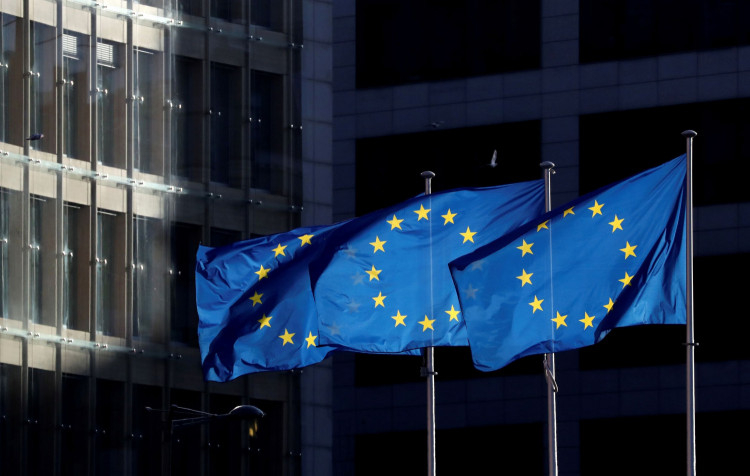The euro zone economy expanded by 0.4% in the first quarter of 2025, outperforming expectations and marking a modest rebound from the previous quarter's 0.2% growth. However, the bloc's fragile recovery has come under renewed threat following sweeping trade measures from the United States.
Data released Wednesday by Eurostat showed that the 20 countries using the euro began the year with stronger-than-expected momentum. Germany's GDP rose by 0.2%, while France added 0.1%. Smaller economies outpaced the core, with Spain and Lithuania each growing 0.6%, Italy gaining 0.3%, and Ireland posting a 3.2% surge, fueled by multinationals.
Despite the upbeat start, the outlook for the euro zone has deteriorated sharply after President Donald Trump announced a 20% blanket tariff on European imports on April 2, just two days into the second quarter. Additional levies on steel, aluminum, and automobiles remain in place. The tariffs have led to downgraded forecasts across the region, with Germany slashing its 2025 GDP outlook to zero.
The European Commission's economic sentiment indicator dropped to 93.6 in March, its lowest reading since December. "The last four weeks of tariff tensions and uncertainty have entirely wiped out the tentative return of optimism in the eurozone," said Carsten Brzeski, global head of macroeconomics at ING.
Franziska Palmas, senior Europe economist at Capital Economics, said the latest GDP reading "showed the area's economy started 2025 on a stronger footing than activity surveys had suggested." However, she cautioned that "we still expect growth to slow sharply in the next six months as the U.S. tariffs introduced in April will hit activity."
The ECB has been attempting to stimulate growth by cutting interest rates. Earlier this month, it lowered its deposit facility rate to 2.25%, down from 4% in mid-2023. Inflation remains near target, with March consumer prices rising 2.2%. New inflation data is due later this week.
At the IMF-World Bank Spring Meetings, ECB President Christine Lagarde warned of external shocks, citing U.S. trade policy as a major downside risk. The "disinflationary process is so much on track that we are nearing completion," she said, "but there are shocks that would dampen economic growth."
While the Trump administration has paused further "reciprocal" tariffs for 90 days, European officials say prospects for a permanent rollback remain uncertain. The EU has suspended its own retaliatory measures for now but continues to weigh its options.
The euro edged 0.08% lower against the U.S. dollar following the GDP report, while Germany's benchmark 10-year bond yield slipped three basis points. Markets remain sensitive to trade developments, which economists say could shape the trajectory of the euro area's recovery in the second half of 2025.






